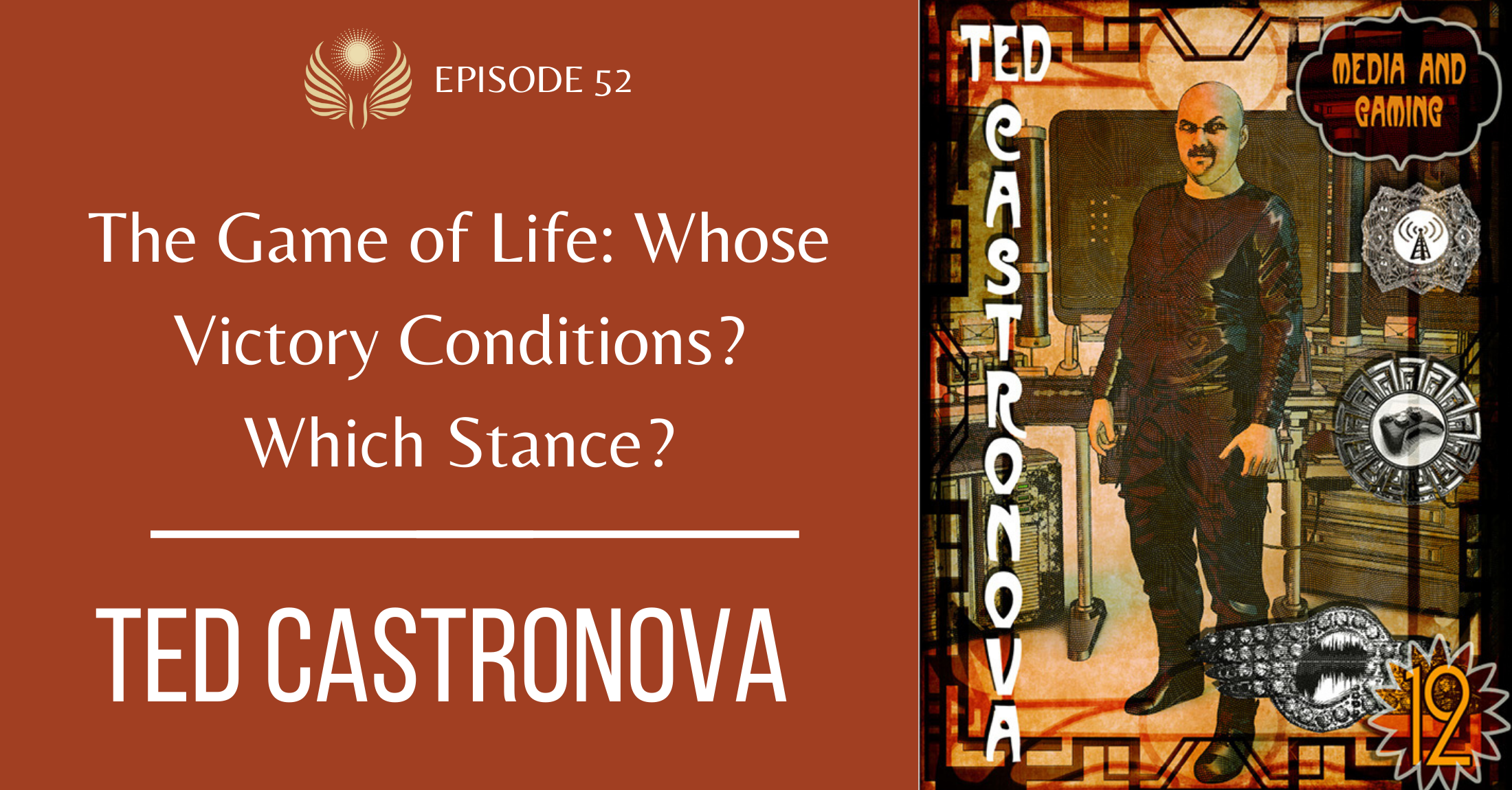On this episode of the podcast, Grant interviews Ted Castr0nova, Professor of Media at Indiana University and author Life is a Game: What Game Design Says about the Human Condition.
Mathematical game theory defines a game as anything that has players making strategic choices to achieve an outcome that matters to them. From this, Ted argues that life itself is a game, and as Christians we can view God as a game designer who has given us free will to make choices within His design.
But if life is a game that we are playing, why do so many people find themselves frustrated and bored by it? And why is the allure of virtual worlds—from the hype around the Metaverse, to the vibrant culture around online gaming—so strong? Many futuristic movies and novels (such as The Matrix, Ready Player One, and Snow Crash) portray virtual reality as having a fundamental role in a dystopian world, often as a distraction from a real world that is somehow broken. Is virtual reality attractive because we’ve forgotten how to “play” the game of life? Or can the games of the real and virtual worlds coexist in a balanced way? Which game are we all really playing, and how do we actually win it? What can games—whether tabletop or VR—teach us about living?
Listen as Ted and Grant discuss these and other questions about games, reality, and the many places where the two meet.
Rather than an effort to pull online games into one virtual “mega world,” virtual products—games and other things—have proliferated and become more individualized
Mathematical game theory: a game is any strategic interaction among people where the choices they make matter to the outcome
According to this definition, life can be defined as a game
If you know what your victory conditions are, you can make sure you’re playing the “game” of life in a logical way to reach that end
Asymmetric play is what happens when different players have different victory conditions and sets of rules
If life is a game, one can view God as a game designer; He has given everyone free will to make choices, and the victory conditions etc are embedded in His design
Philosopher Alisdair MacIntyre explained that the modern world is missing a sense of quest or mission; this can lead to boredom or frustration with life
Current methods of research on the impact of video games on pro- or anti-social behavior don’t provide very accurate results
“I think if you have a kid who's got problems and they play a lot of video games, the problems are causing the video game play, not the other way around. I have never heard of a case of a kid who was doing great with his parents, and getting along with kids at school, and doing his homework, but [then] started playing a video game and now his life is ruined”
Board games fuel much more creativity and understanding than video games, because you are doing the work a computer does in a video game
“I think increasingly parents need to have a good sense of what's a good game and what's a bad one”
In the future, people will spend more time on screens, and more and more of the things we do together will likely be satisfied by screens
Although people can “do religion” in the Metaverse, the sacraments require physical presence
“I don't identify the term Metaverse with a particular product. I think the Metaverse, if I were to define it, would be the collection of all digitally mediated experiences”
Missionaries in the Metaverse would have to balance calling people away from addiction to virtual reality with the realization that they may not have much life outside of it
Futuristic books and media that portray a virtual future are driven by despair rather than hope
“The fact that people are so drawn to virtual experiences is a mirror on the world we've made out here. If the world out here was better, I don't think the Metaverse would be as attractive as it is”
If a dystopian reality where most people are living in virtual reality comes to pass, people who choose to live outside of it will “own the human genome”—it will never be all of humanity
The impact of VR on individuals with less social capital will be much more devastating than on those with more privilege, who will have the resources to manage it
The relationship between digital governments and real world government (IE Twitter, bitcoin, etc) is still taking shape
Rather than producing one-world dystopian scenario, VR technologies will increasing polarize us
In virtual environments you can choose your own community—there’s no reason to interact with anyone you don’t like
AI “taking over” is not a big dramatic thing, but something that happens in many small ways (
An increase in VR usage will shape expectations of the real world: “What happens is people get frustrated with the real world [...] the folks raised by video games are just baffled at the way the real world works. And I think that'll just get worse and worse”
Links:
Virtual Worlds: A First-Hand Account of Market and Society on the Cyberian Frontier
Life is a Game: What Game Design Says about the Human Condition
Game Theory on Encyclopedia Britannica
Megagame Simulates Large-Scale Viral Outbreak
Who Will Inherit the Earth? with Lyman Stone
Lost in the Cosmos by Walker Percy
One Man’s Endless Hunt for a Dopamine Rush in Virtual Reality
The Metaverse Has Always Been a Dystopian Idea
Ready Player One is a Fun Romp That’s Even More Dystopian Than It Realizes

